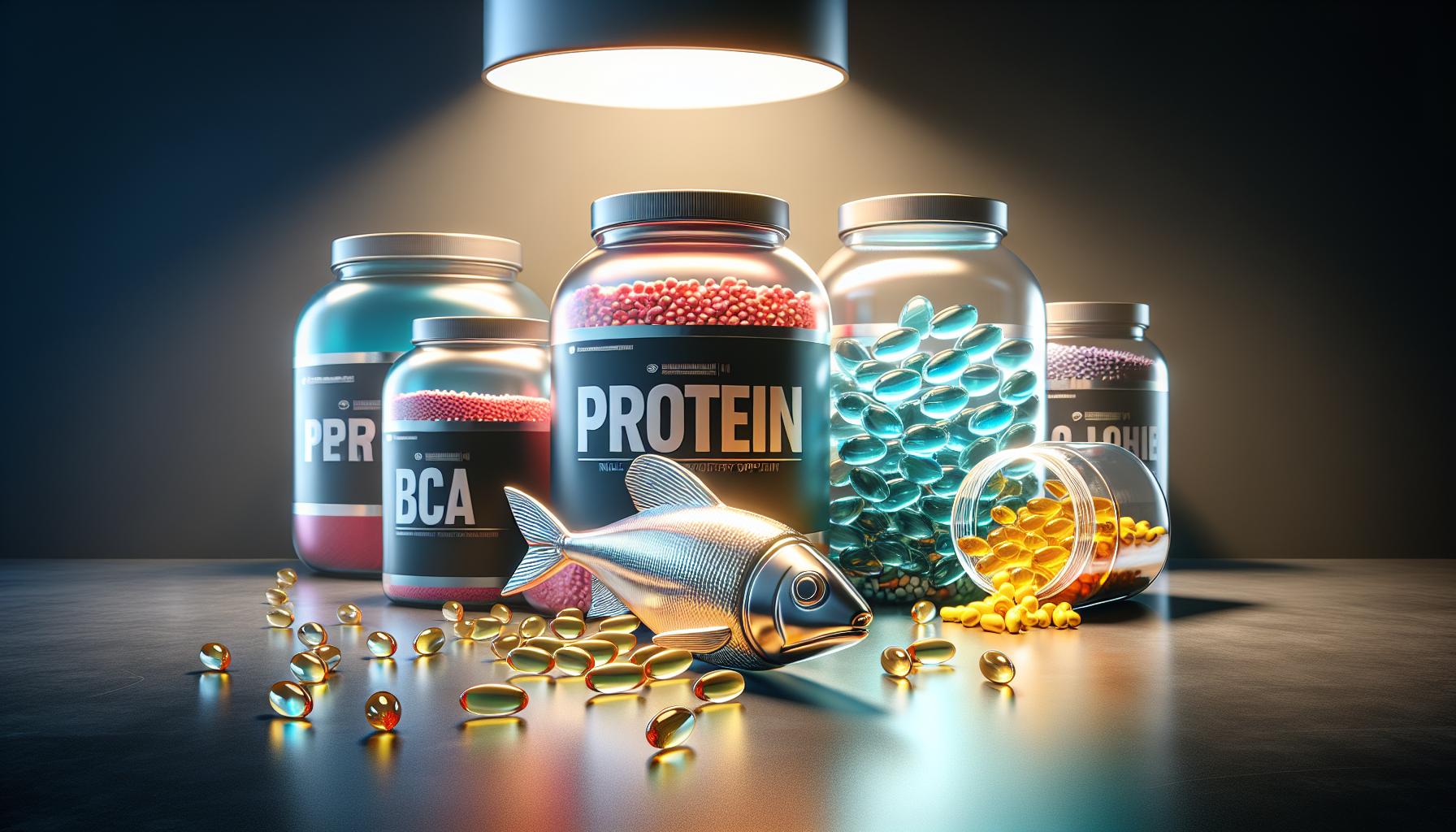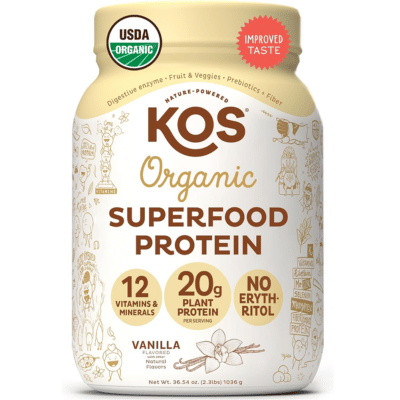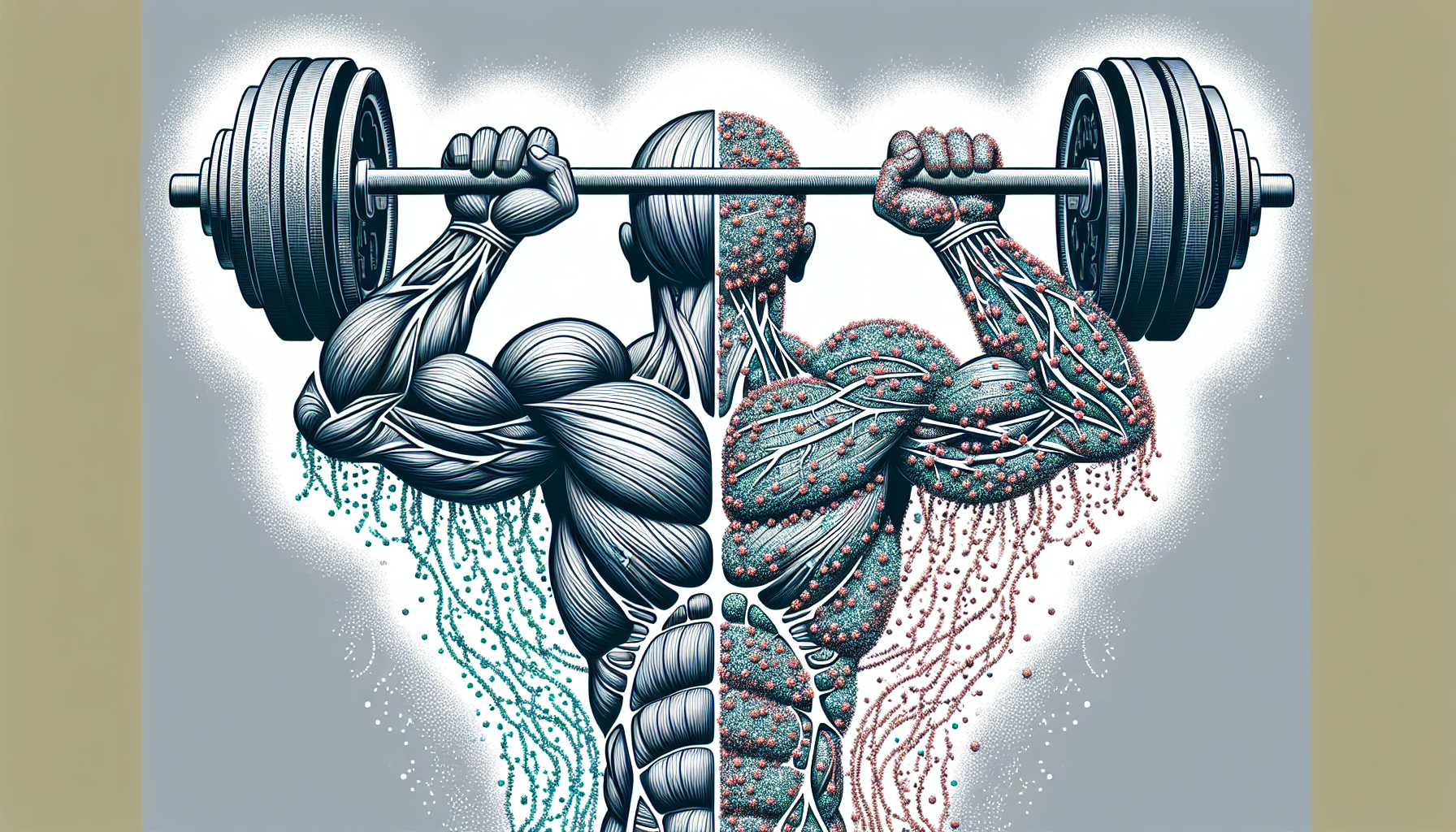Looking for the best supplement for recovery? Whether you're an elite athlete or a fitness enthusiast, the journey to optimal recovery can significantly impact your performance and overall well-being. Effective muscle recovery is crucial for muscle growth, enhanced performance, and injury prevention. Our guide covers everything from protein powders to BCAAs, providing expert insights on how these supplements can aid muscle repair, reduce soreness, and speed up recovery. Dive into the essentials of post-workout recovery and discover the best muscle recovery supplements to help you achieve your health and fitness goals.
In this article, we'll explore the top supplements for muscle recovery, including whey protein, branched-chain amino acids (BCAAs), creatine monohydrate, omega-3 fatty acids, magnesium, and tart cherry juice. You'll learn the importance of proper dosing and timing, how these supplements promote recovery, and why incorporating them into your supplement regimen can optimize your post-workout process. By understanding the role of nutrition, hydration, and the right supplements, you'll be well-equipped to tackle muscle soreness, reduce muscle fatigue, and support muscle repair for better performance and faster healing.
Key Takeaways
- Effective muscle recovery is crucial for muscle growth, enhanced performance, and injury prevention, involving key factors like rest, hydration, and nutrition.
- Top supplements for muscle recovery include protein powders, BCAAs, creatine monohydrate, omega-3 fatty acids, magnesium, and tart cherry juice.
- Proper dosing and timing of supplements, a balanced diet, and hydration are essential for maximizing the benefits of muscle recovery supplements.
Why Muscle Recovery Matters

Effective training and overall fitness hinge upon muscle recovery. After strenuous exercise, your muscles need time to repair and rebuild their muscle fibers. This recovery process promotes muscle growth, enhances performance, and prevents injuries. When you prioritize muscle recovery, you ensure that your body can maintain good form during workouts and avoid overtraining, which can lead to setbacks.
Proper muscle recovery isn’t just about resting; it involves a comprehensive approach, including rest, refueling, and regeneration phases. Support muscle protein synthesis, an essential muscle repair and growth process is achievable through adequate muscle care. This holistic recovery process helps reduce muscle soreness, improve muscle mass, and boost overall muscle performance.
Key Factors in Muscle Recovery
Several key factors play a pivotal role in muscle recovery. Rest is paramount; it includes improving sleep quality, limiting stress, and ensuring physical and psychological relaxation. Quality sleep is where much muscle repair and regeneration happens, making it an indispensable part of recovery.
Another key component is hydration. Proper hydration helps replenish fluids lost during exercise, and consuming electrolytes such as sodium and potassium can help maintain and restore hydration levels by pulling water into the bloodstream. It’s recommended to drink 7 to 12 ounces of cold fluid about 15 to 30 minutes before exercising to stay adequately hydrated.
Nutrition also holds equal importance. Consuming nutrient-dense foods rich in protein, such as beef, poultry, fish, eggs, dairy, and plant-based options like soy and legumes, builds muscle repair. Electrolyte-rich foods like coconut water, watermelon, bananas, and oranges are excellent post-workout options for recovery.
Lastly, using recovery tools such as foam rollers, percussion instruments, and compression boots can aid in muscle relaxation and reduce sore muscles and muscle soreness post-workout. These tools help recovery by promoting blood flow and reducing muscle stiffness, ensuring you’re ready for your next workout session.
Top Supplements for Muscle Recovery

Anyone aiming to enhance their recovery process can find muscle recovery supplements as game-changers. These supplements, from protein powders to BCAAs, support muscle repair, reduce muscle soreness, and boost overall recovery. One highly recommended muscle recovery supplement is a blend of branched-chain amino acids (BCAAs). Competitive triathletes, dietitians, and sports nutrition coaches have identified the best muscle recovery supplements for 2023, which include:
- Protein powders
- Branched-chain amino acids (BCAAs)
- Creatine Monohydrate
- Omega-3 fatty acids
- Magnesium
- Tart cherry juice
Each of these supplements offers unique benefits:
- Protein powders: increase physical performance, lean body mass, and muscle strength
- BCAAs: essential for reducing muscle fatigue and promoting muscle growth
- Creatine monohydrate: enhances energy production and muscle strength
- Omega-3 fatty acid: helps reduce inflammation
- Magnesium: supports muscle relaxation
- Tart cherry juice: rich in antioxidants that aid recovery
We shall now explore each of these supplements in greater detail.
Protein Powders

There’s a good reason why protein powders are among the most popular muscle recovery supplements. They provide a convenient and efficient way to increase protein intake, crucial for muscle rebuilding post-exercise. Whey protein, in particular, stands out due to its fast absorption and complete amino acid profile, making it highly effective for muscle recovery.
Muscle Feast Premium Blend Protein offers the benefit of both fast and slow absorption rates due to its combination of casein and whey. This helps in providing a sustained release of protein throughout the day. This ensures a steady supply of amino acids for muscle protein synthesis, maximizing muscle growth while minimizing recovery times.
Also, because of the ever-increasing number of vegan and vegetarian health enthusiasts who prefer plant-based options, KOS Organic Plant Protein offers a wonderful alternative. It provides 20 grams of USDA Organic vegan protein powder with a 5-protein blend of Pea, Flax Seed, Quinoa, Pumpkin Seed, and Chia Seed, plus essential vitamins & minerals.

Pea Protein Blend, Plant-Based Superfood Rich in Vitamins & Minerals - Keto & Dairy Free
It’s worth noting, however, that if your regular diet already provides enough protein, protein supplements may not be necessary. Always consider your dietary intake before adding supplements to your regimen.
Dosing Guidelines
Proper dosing is crucial to maximize the benefits of muscle recovery supplements. Here are some recommended dosages:
- Adults: 0.8 grams of protein per kilogram of body weight per day (recommended dietary allowance for protein)
- Athletes and regular exercisers: 1.2–2 grams of protein per kilogram of body weight per day
- After exercise, 20 to 25 grams of high-quality protein significantly increases muscle protein synthesis and enhances muscle recovery and growth.
To achieve optimal results, consuming 20-40 grams of whey protein within an hour after your workout is recommended. This timing ensures that your muscles receive the necessary nutrients to start the repair process immediately.
Branched Chain Amino Acids (BCAAs)

BCAAs, including leucine, isoleucine, and valine, are essential amino acids for muscle tissue building and repair. Each amino acid is crucial in promoting muscle growth and reducing muscle soreness. These amino acids play a crucial role in muscle recovery by reducing exercise-induced muscle damage and promoting muscle protein synthesis.
BCAAs have several benefits, including:
- Increasing muscle protein synthesis
- Improving muscle recovery and reducing muscle soreness
- Enhancing endurance and reducing fatigue
- Supporting immune function
- Promoting fat loss and preserving lean muscle mass
These benefits make BCAAs an excellent addition to any recovery-focused supplement regimen.
Dosage Recommendations
For BCAAs, the recommended dosage ranges from 12 to 20 grams per day, divided into several doses. This approach ensures a steady supply of amino acids to support muscle recovery throughout the day. A typical BCAA dosage takes 5-10 grams before or after workouts to maximize their benefits.
Adhering to these guidelines is important to avoid possible side effects and maximize the benefits of your BCAA supplements.
Creatine Monohydrate
Another highly effective supplement for muscle recovery is creatine monohydrate. It offers several benefits, including:
- Enhancing energy production
- Boosting muscle strength
- Facilitating faster recovery
- Aiding in muscle-building
- Assisting with injury prevention
- Improving cognitive and bone health
Studies have shown that creatine can:
- Decrease the severity of muscle damage caused by exercise
- Promote faster recovery when taken before or after resistance training sessions
- Help reduce muscle loss during periods of immobilization
- Support muscle mass recovery
If you want insight into top Creatine supplements, our article "The 4 Best Creatine Supplements For You To Consider" is an excellent introduction. The four Creatine supplements reviewed are highly rated by as many as 70,000 reviews, of which 78 to 80 percent rank them 5 out of 5 stars!
Proper Usage
Proper usage of creatine involves a loading phase followed by a maintenance dose. The loading phase typically involves consuming about 0.3 grams per kilogram of body weight daily for five to seven days. Alternatively, a loading dose could be 20 grams daily for 5-7 days or 5 grams taken four times daily for the same duration.
After the loading phase, a maintenance dose of 3-5 grams daily is recommended to sustain the increased muscle creatine stores. It’s also important to maintain proper hydration and a balanced diet to maximize the benefits of creatine supplementation.
Omega-3 Fatty Acids
Known for their anti-inflammatory properties, omega-3 fatty acids can significantly aid in muscle recovery. These essential nutrients help reduce inflammation and muscle soreness, making them an excellent addition to your recovery regimen.
Found in foods like fish and walnuts, omega-3s have several benefits for muscle health, including:
- Supporting the immune system
- Improving blood flow
- Decreasing pain
- Helping to repair and build muscle
While more research is needed, studies have shown that omega-3 supplementation can significantly decrease muscle soreness.
Dosage and Sources
The recommended daily intake of omega-3 fatty acids is between 1.1 and 1.6 grams for adults. It’s important to ensure that you incorporate these healthy fats into your diet for overall well-being. However, dosage recommendations can go up to 6 grams daily, including 2,400 mg of EPA and 1,800 mg of DHA, depending on individual needs.
Omega-3s can be found in various dietary sources, such as:
- fish
- seafood
- nuts
- flaxseed oil
- chia seeds
Including these in your diet can help ensure you adequately intake these essential fatty acids. For those who prefer supplements, consuming 1-2 grams of omega-3 fatty acids daily from fish oil supplements is recommended for muscle recovery.
Again, for our vegan and vegetarian enthusiasts, we refer to our article "From Algae to Awesomeness: Five of The Best Vegan Omega-3 Supplements You Need to Know." Here, we review top plant-based Omega-3 supplements that deliver the full complement of EPA and DHA found in fish oil sources.
Magnesium
For muscle relaxation and recovery, magnesium is indispensable. It can help reduce muscle fatigue and prevent muscle cramps, making it essential for anyone who regularly exercises. Magnesium also boosts exercise performance, increases strength and power, and improves movements like rotation, jumping, and extension.
Ensuring adequate magnesium intake can significantly enhance muscle recovery and athletic performance.
Supplementation Tips
Regarding magnesium supplementation, the recommended daily intake for adults is 400-420 mg/day for men and 310-320 mg/day for women. Supplemental magnesium is typically recommended in daily doses ranging from 250 to 450 mg for adults. The specific dosage may vary based on individual needs and health considerations.
It’s important not to exceed these recommendations, as higher doses can cause adverse effects like diarrhea, and excessively high doses can be dangerous. Additionally, magnesium supplements can interact with certain medications, so it’s advisable to consult with a healthcare professional before starting supplementation.
For more information on Magnesium, our article, "Magnesium Marvels: Discover the Five Best Magnesium Bisglycinate Chelate Supplements for Your Wellbeing," can serve as a valuable guide.
Additional Nutrients to Support Recovery

Beyond the primary muscle recovery supplements, several other nutrients can significantly support muscle repair and reduce inflammation. Beta-alanine, vitamin C, and tart cherry juice are among the top contenders in this category. These supplements help in various ways, from delaying muscle fatigue to improving collagen synthesis and reducing exercise-induced muscle damage.
Incorporating these additional nutrients into your recovery regimen can provide a comprehensive approach to muscle recovery, ensuring that all aspects of muscle repair and regeneration are addressed.
Beta-Alanine
Beta-alanine is a popular supplement for enhancing endurance and performance during high-intensity exercise. It increases muscle carnosine levels, which helps buffer acid and delay fatigue. This can be particularly beneficial for athletes who engage in strenuous physical activities.
Regular beta-alanine supplementation can improve endurance, performance, and body composition by aiding muscle gain and fat loss. The recommended dosage for beta-alanine is 4 to 6 grams daily, ideally taken before workouts to boost performance.
Vitamin C
Another essential nutrient that plays a significant role in muscle recovery is Vitamin C. Known for its antioxidant properties, vitamin C is vital for producing collagen, a key component in muscle and tendon health. Collagen helps maintain the integrity of muscles and tendons, which is crucial for effective muscle repair and reducing the risk of injuries.
Additionally, vitamin C is important for wound healing due to its role in collagen synthesis. Ensuring an adequate intake of this vitamin can support the overall recovery process, helping you bounce back faster from intense workouts and muscle strain.
Tart Cherry Juice
Tart cherry juice is gaining popularity as a recovery aid due to its high antioxidant content. These antioxidants help reduce exercise-induced muscle damage and inflammation, making them a powerful muscle recovery tool. The benefits of tart cherry juice for muscle recovery include:
- Reducing muscle soreness
- Aiding in strength and power recovery
- Decreasing exercise-induced muscle damage
- Reducing inflammation
Consuming 8-12 ounces of tart cherry juice extract twice a day is recommended to maximize its recovery benefits. This juice is especially useful as a ‘precovery’ supplement, meaning it should be consumed in the days leading up to strenuous exercise to prepare your muscles for the upcoming stress.
Choosing the Right Supplement for Your Needs
Given the many options available, selecting the right supplement can seem daunting. To make an informed choice, assessing your personal recovery needs and any dietary deficiencies you may have is crucial. Whether you need a protein supplement to boost muscle protein synthesis or an omega-3 supplement to reduce inflammation, understanding your specific needs will help you choose the most effective products.
Consider consulting with a healthcare or fitness professional to gain valuable insights into which supplements best align with your health and fitness goals. This personalized approach ensures that your supplements will address your unique requirements and enhance your recovery.
Assessing Personal Requirements
A thorough evaluation of your fitness routine, the types of exercises you perform, and any nutritional gaps in your diet are involved in assessing your personal recovery needs. Researching which supplements have proven efficacy for your specific recovery goals is essential. For instance, if muscle fatigue is a significant issue, BCAAs might suit your regimen.
Consider how your body responds to different types of exercises and identify areas where you might need additional support. This tailored approach ensures that you are not just adding supplements but integrating them to complement your overall fitness strategy.
Evaluating Supplement Quality
In evaluating supplement quality, opt for products tested by third-party organizations to ensure they meet high quality and safety standards. Ingredient transparency is another critical factor; choose supplements that list all ingredients and their dosages.
High-quality supplements adhere to strict safety standards and do not contain any unapproved or illegal substances. This attention to detail ensures you consume safe, effective products that support your recovery goals.
How to Integrate Supplements into Your Routine
Careful planning is required to integrate supplements into your routine and ensure maximum benefit. Some supplements, like beta-alanine, are best taken before exercise to boost performance, while others, like protein powders, are most beneficial when consumed post-workout to aid muscle recovery. Understanding the optimal timing for each supplement can enhance their effectiveness.
Post-workout is an ideal time to consume protein supplements, as your muscles are primed to absorb nutrients and start the repair process. Incorporating rest days into your routine is also essential for post-workout recovery; giving your body time to recover can significantly reduce muscle strain and improve overall recovery.
Ultimately, the key is consistency. Establish a supplement regimen that fits seamlessly into your daily routine, making it easier to stick to and ensuring you get the full benefits of each supplement. This consistent approach will help you achieve optimal recovery and maintain peak performance.
Wrapping Up Our Discussion
Muscle recovery is essential to any fitness regimen; the right supplements can make a significant difference. From protein powders and BCAAs to creatine monohydrate and omega-3 fatty acids, each supplement offers unique benefits that support muscle repair, reduce soreness, and enhance overall recovery. Assessing your needs and choosing high-quality supplements tailored to your goals can optimize your recovery.
Integrating these supplements into your routine effectively ensures that your muscles get the support they need to heal and grow stronger. Make muscle recovery a priority, and watch as your performance improves, injuries decrease, and you achieve your fitness goals faster. Remember, recovery is not just a part of training; it’s the key to unlocking your full potential.
Some Brief Answers to FAQs
How can I speed up my recovery fast?
To speed up your recovery, drink at least 2 liters of water daily, get enough quality sleep, eat protein at each meal, and incorporate light movement daily to promote blood flow. Getting adequate rest and stretching after workouts are also crucial for faster recovery.
What are the best supplements for muscle recovery?
To support muscle recovery, consider incorporating protein powders, BCAAs, creatine monohydrate, omega-3 fatty acids, magnesium, and tart cherry juice into your regimen. These supplements can aid in faster recovery and better muscle repair.
How much protein should I consume for muscle recovery?
To maximize muscle recovery, consume 20-40 grams of high-quality protein, like whey protein, within an hour after exercise. This can support your body’s recovery process and promote muscle repair.
What are the benefits of BCAAs for muscle recovery?
BCAAs reduce exercise-induced muscle damage, promote muscle protein synthesis, and decrease muscle soreness, aiding in quicker recovery. These benefits make them a valuable supplement for muscle recovery.
How should I take creatine monohydrate for best results?
To achieve the best results, start with a loading phase of 0.3 grams per kilogram of body weight per day for 5-7 days, followed by a maintenance dose of 3-5 grams daily to sustain increased muscle creatine stores. This approach typically yields optimal outcomes.
Thanks for taking this journey to explore the best supplement for recovery. If you want to add to your library of knowledge and are interested in diving deeper into some of the supplements mentioned in this article, you should check out the links above. It could be a huge time-saver - you won't be sorry you took a look.
Also, please return soon to check out our next review of other incredible supplements – we’re always looking out for YOU!
*We are NOT qualified medical advisors. The content here is only based on our personal opinions and research and should NOT be used as a substitute for a healthcare professional's advice!
**This site contains affiliate links. We may earn a small commission through links in this post.











Member discussion